Dubai school fees are frozen for another year – but at what cost?
https://youtu.be/Yj1ujvzl3U8
There is no such thing as a free lunch… there is always a price to pay – and Dubai School Fees are no exception. The two clichés have been particularly apt this week senior leaders have told SchoolsCompared.com as fees were again frozen by the Dubai education regulator. Something, they said, has to give. In the case of schools, that CAN be in terms of innovation, the ability to recruit top teaching talent, and the ability to retain it, meaning the school you chose based on its quality of staff, its ECAs or its facilities, may not be the same school you get going forward…
Announcements about Dubai school fees always set the cat among the pigeons. Whether they’re rising, falling, or staying the same, you can be sure that somebody’s feathers will be ruffled somewhere.
But what about the story behind the headlines? This week Dubai’s private-school regulator, the Knowledge and Human Development Authority (KHDA), announced that school fees will be frozen for the next academic year 2022 – 2023. Laptops, phones and social media groups lit up as most parents across the emirate expressed both joy and relief at the news. And it’s little wonder – whether parents are experiencing or recovering from pandemic salary cuts or not, the news that the family purse strings do not have to be further tightened to pay for education is bound to be welcome.
However, there is a flip side to the story. This will be the third year running that fees have remained static, and UAE schools tell us that the cracks are beginning to show.
One parent commented on our post about the School fees freeze:
“Who is going to pay for this? I don’t want my kids to have unhappy teachers or the quality of teaching to suffer.”
Although schools are glad to be able to offer good-value education to Dubai families, school leaders have revealed (in hushed whispers, mostly) that their inability to raise fees once again is going to have consequences – on their propensity to innovate, their ability to retain and attract the best staff, and ultimately on the quality of education that they’re able to provide.
We’ve spoken to the city’s top education experts and school leaders – most of whom have requested to remain anonymous due to the sensitive nature of the discussion – to bring you the real story behind the Dubai school fees headlines.
Why are Dubai school fees being frozen?
The decision regarding whether or not Dubai private-schools may raise their fees is based on the Education Cost Index (ECI) issued by the Dubai Statistics Center. The ECI measures annual changes in the costs of running a school, including salaries, rent and utilities. This year the ECI has been set at -1.01%, meaning that school costs supposedly went down by around 1% in the past year.
Dubai Statistics Center (DSC) explains:
“The education cost index is calculated by DSC by means of a followed methodology in calculating school workers’ salaries, rents, maintenance, electricity and water consumption costs, according to accurate, comprehensive data concerning the operational costs in Dubai’s educational sector.”
The Education Cost Index is considered to be a “safety valve for parents”, according to a KHDA spokesperson commenting on the School Fees Framework in 2016, as it “maintains sustainability in their children’s schools. This lays the foundation for a stable educational environment in the long run in Dubai for all stakeholders, including education service providers”.
How are Dubai school fee increases calculated?
The KHDA follows a comprehensive School Fees Framework that is hinged around the Education Cost Index and allows schools to raise fees incrementally based upon their performance.
Under this framework schools that have maintained the same Dubai School Inspection Bureau (DSIB) rating from year to year are allowed to increase their fees at a percentage that is equivalent to the ECI. Those schools that have improved their inspection ratings over the year may increase their fees by different multiples of the ECI percentage, depending on the inspection level that they have moved from and to; for example, those schools that have improved from Acceptable to Good may increase fees by a percentage that is twice the ECI, while schools that have improved their rating from Good to Very Good can amend their fees at a multiplier of 1.75 of the school cost index (see table).
Although it is not mentioned in the School Fees Framework document, it appears that when the Education Cost Index is a negative figure, the eligible percentages do not apply and school fees are simply maintained instead.
The DSC explains that the school fee regulation framework is designed to connect the ‘quality of education’ to the ‘education cost index’, so as to “protect the interests of students and their parents, as beneficiaries of the education services, in addition to providing a suitable climate for investors in the education sector and encouraging them to promote education quality in Dubai.”
Mohammed Darwish, CEO of the Regulations and Permits Commission at the KHDA adds:
“Our robust fee framework ensures complete transparency and balances the expectations of families and schools.”
The Education Cost Index and Fee Framework were not created by the KHDA alone but were developed in collaboration with Dubai Government entities, including Dubai Statistics Centre, Department of Economic Development, and Dubai Chamber of Commerce, among others.
What do Dubai schools think of the fee freeze?
Although parents have largely been delighted by the news of the 2022-2023 fee freeze, it’s a far more complex story for the Dubai schools we talked to.
Giles Pruett, Principal of Arcadia school in Dubai told SchoolsCompared.com:
“There are two competing sides to this decision. Firstly as a parent, the pandemic has hit many families really hard with loss of business, salaries and benefits cut. The cumulative effect across the city and the fact that the financial impact has a lag time whereby parents are being impacted now means that the fee freeze will come as a relief.
“Secondly, from an administration angle, many costs have actually increased during the pandemic. A good example is transportation costs due to reduced shipping traffic and port delays due to the pandemic. Sourcing of resources and equipment has seen an increase cost as shipping charges have trebled since the beginning of the pandemic.
“Every school’s largest cost is staffing, with teachers placed on a scale, sometimes associated with performance, which moves up annually. Therefore if the largest source of income (fees) does not match the largest expenditure, schools may suffer as a result.
“The ECI has clearly been generated by looking at a variety of economic factors across the city and region and schools have to be agile enough to deal with these fast-moving changes, particularly as we move out of the pandemic.”
Other school leaders and Principals we spoke to expressed stronger opinions on the Dubai school fee freeze.
One Principal of a well-established all-through Dubai school, who wishes to remain anonymous (we’ll call him ‘Principal A’), said:
“This Principal is really disappointed and surprised that once again schools are not allowed to raise fees. We are [far from] a premium-tier school, our fees are below what other international schools are charging, and it is becoming increasingly difficult to run a school without any kind of allowance for increasing fees.”
Have school costs really reduced?
Although the Education Cost Index figure of -1.01% suggests that school costs were lower over the past year, some school leaders claim that this is not what they have experienced.
One school leader (we’ll call him ‘Principal B‘) at a British Curriculum school in Dubai, who wishes to remain anonymous, told SchoolsCompared.com:
“In the three years since the last fee increase has been approved the Dubai economy has soared – real estate prices have risen, tourism has thrived, Expo has driven demand for services, and petrol prices have been increased consistently; just two days ago they went up by 10%.
“Construction costs like the price for steel and cement have also gone up, so our new construction is already over budget. So we are being hit from all sides.
“Plus new schools are coming up so our competition keep giving discounts, which is adding pressure and compresses the ability to provide world-class education.
“Also the corporate tax law will be introduced from next year, which means we will soon be looking at a further 9% compression on margins. Other businesses will pass that percentage on to consumers in some way or other, but schools can’t do that since we are price regulated.”
Regarding the ECI percentage of -1.01%, ‘Principal A’ said:
“I fail to understand where the -1.01% EDI figure comes from because I just see everything around me increasing in price.
“Petrol has gone up, accommodation and rent is going up, food and groceries have increased a lot; as far as I can see, inflation is increasing, which also means that our running costs as a school are going up such as the daily maintenance, DEWA bills, rental of teacher and staff accommodation, and so on.”
Another anonymous school Principal (‘Principal C’) speculated on the reasons for the ECI figure, pointing out that although school spending might have gone down in the past year, it was due to necessity rather than through choice or because costs were lower:
“We have been in a pandemic and so utility costs have gone down, so that could be one reason. But we have consumed less resources because we were not allowed to use them. Teachers have had to suffer a net loss as their salaries stay the same whilst inflation increases.
“Running costs have therefore stagnated because we have not been allowed to move forward.”
Will a school fee freeze impact the quality of teaching at schools?
The most frequently emphasised point made by the school leaders we’ve spoken to is the problem of attracting and retaining the right calibre of staff.
It is generally accepted that teacher salaries are the highest expenditure of any school, representing at least 60-70% of a school’s spending.
UAE schools often recruit teachers from abroad, but our contacts reveal that it is becoming increasingly difficult to attract the best talent, since UAE school packages are becoming less competitive.
The majority of Dubai private schools teach the British curriculum, and the UK is one of the major talent pools from which schools recruit their teachers. But while Dubai’s teachers’ salaries have largely stagnated in line with the fee freeze over the past three years, the UK government awarded teachers their biggest pay rise in 15 years in the summer of 2020. The starting salary for new teachers was raised by 5.5% and the UK government increased the upper and lower boundaries of the pay ranges for all other teachers by 2.75%.
Meanwhile in India – another major source of UAE teacher talent, with the majority of UAE school teachers being of Indian nationality – many states have also raised teacher salaries, with some hiking them up by as much as 50%.
Unesco figures show that there was a massive global teacher shortage long before the pandemic hit, and this crisis has only got worse in recent years.
‘Principal A’ said:
“We are losing out in the teacher market as other countries have caught up in comparison to the cost of living here. Dubai is now not a first choice in the teaching market.”
The fee freeze is certain to impact teachers in the school of ‘Principal B’, who says:
“We need to pay competitive salaries to retain the best staff and we cannot keep them on no salary hikes for so many years now. We were planning to do a 3% salary increase for teachers next year, but now that will need to be put on hold.”
‘Principal C’ adds:
“The teacher shortage will only increase. With all costs going up in Dubai it is difficult to see how we can continue employing top teachers without our own costs rising.”
Will the fee freeze impact the quality of my child’s education?
It is a delicate balancing act when it comes to schools meeting all parents’ expectations, and those families who have chosen to put their children in a premium-tier school will naturally expect premium-tier initiatives and facilities. But while the third fee-freeze in a row may please the majority of parents initially, school leaders point out that there could possibly be an impact on schools’ ability to innovate and experiment.
During periods when business costs must be tightly controlled, schools can only focus on providing the fundamentals – investment in progressive new pedagogies, emerging technologies or exciting new facilities will inevitably suffer.
‘Principal B’ explains:
“We are trying to develop facilities to meet the new needs of the curriculum but are now often simply making do with what we have because there is no money for future investment. It is a real challenge for us as school leaders to plan to enhance the curriculum without the requisite investment.”
This is not likely to have a palpable impact on most children’s education any time soon, and schools will no doubt continue to provide the highest quality of learning for their students. Nonetheless, while the very large education groups are sure to be able to weather the storm, education insiders say that it’s the 60-70% of the education market that is made up of smaller schools and education groups that is likely to feel the most impact. As the pressure mounts, our contacts say it’s possible some smaller schools or groups will start to wonder whether it is worth it any more.
As ‘Principal A’ says:
“The fee freeze will start impacting the quality of education at some point because we will have to look for teachers of a different calibre and much lower pay as to what we are providing right now.
“This will also mean that we will have to look for lower quality accommodation as we cannot afford the high rent in the sought-after areas of the city etc. All in all, this will have a snowball effect on not just the quality of education but ultimately the future of the children that are attending Dubai’s private schools.”
Are there any schools that are exceptions and can raise their fees next academic year?
The vast majority of private schools are not eligible to raise their fees for next academic year. The only possible exceptions are Not-for-profit schools, and those who apply to the KHDA and make a case based on the Fair Rate of Return (FRR) measurement, which was introduced in 2015 and replaced the Exceptional Fee Increase framework issued in 2012.
There are a stringent number of conditions that must be met for this and it requires a thorough financial audit. Find out more about the Fair Rate of Return.
Many schools have been offering school fees at discounted rates to the official approved KHDA fees. It should be noted on your child’s school offer letter how long the discount is applicable for. If this is not specified, our advice is to raise the issue with your school. Our understanding is that if a school has been offering a discount on school fees, they are able to raise the fees if they wish. We have contacted KHDA for further clarification on this but did not receive confirmation at the time of going to press.
What if I have a complaint about my child’s school fees?
If you have an issue with your child’s school fees, firstly approach the school to see if something can be agreed. If you want to take the matter further you may raise a complaint with the KHDA.
The BIG debate on School Fees – full audio: Dubai Eye 103.8.
Many thanks to James Mullan, Co-Founder, Which Media; Tom Urquhart, Television and Radio Presenter, Dubai Eye 103.8 FM; and, Brandy Scott, Presenter and Author Dubai Eye 103.8 FM.
More on Dubai Eye 103.8 FM can be found here.
© SchoolsCompared.com. 2022. All rights reserved.











































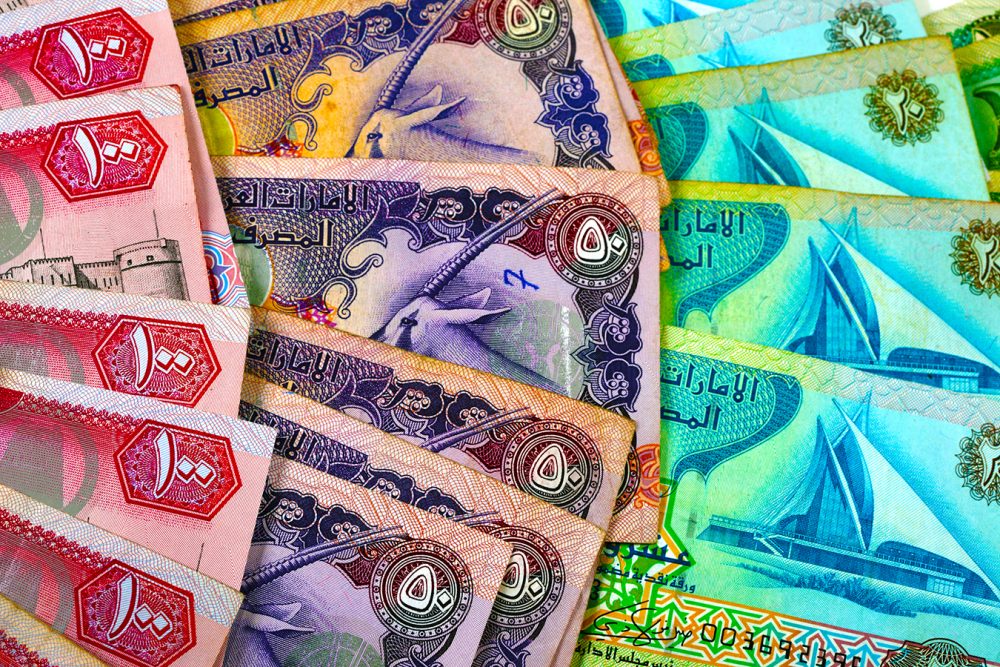

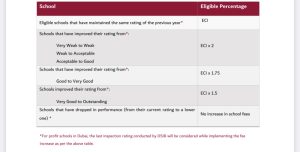
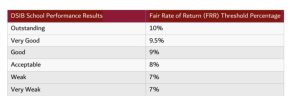

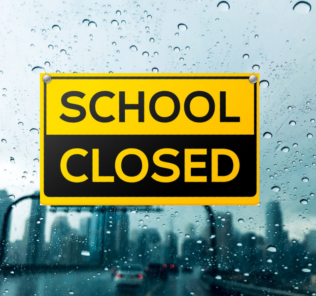




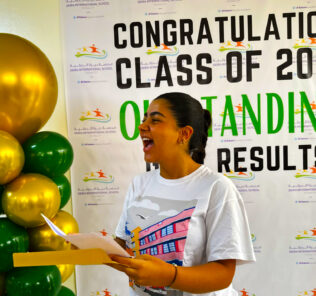




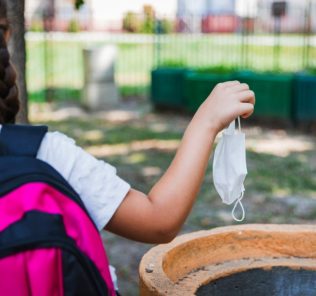

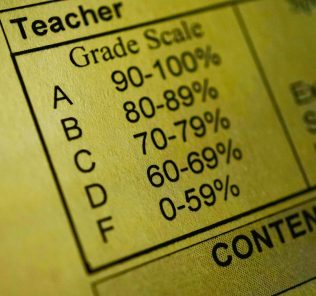
















Leave a Response